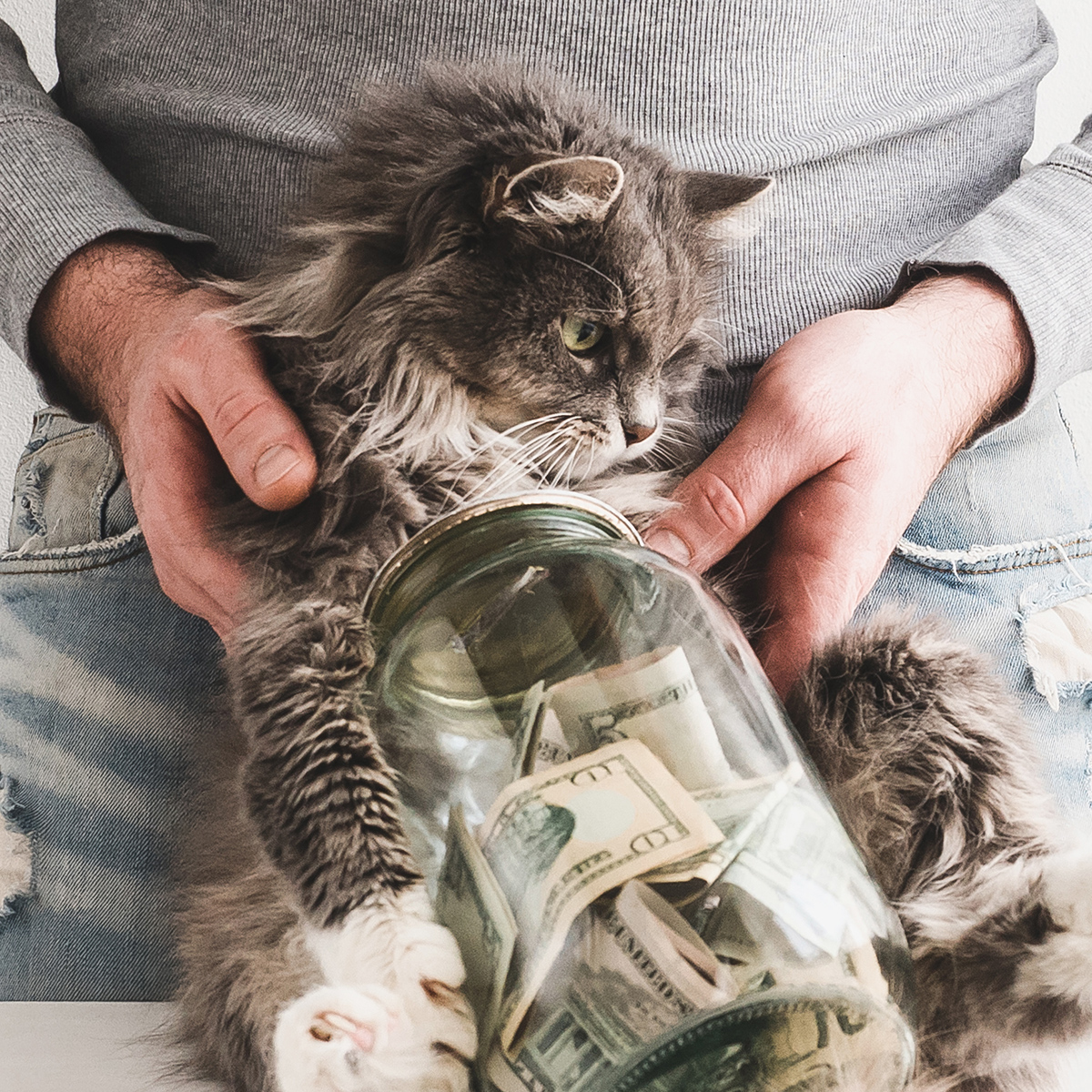5 Ways to Save on Veterinary Bills – and 6 Ways NOT to
Many pet owners consider their pets to be family members. We normally spoil our pets with birthday parties, presents, toys and treats to keep them happy. But, when money is tight, extra expenses need to go. Sadly, some pet owners choose to avoid veterinary visits as one means to save money.
Knowing what you can safely do at home to lower your pet’s healthcare costs is a good way to ensure a healthy pet and a healthy wallet. But first, you should also know what to avoid!
6 Veterinary Shortcuts to Avoid
- Skipping Vaccines/Parasite Prevention. Don’t skimp on wellness or preventive care. Vaccinations and parasite prevention are important parts of maintaining your pet’s health and yours as well. Diseases like rabies and Leptospirosis are zoonotic, meaning they can be spread between animals and people. Similarly, intestinal parasites, or even fleas and ticks, are capable of transmitting serious diseases to our families.
- Buying Cheap Vaccines/Flea Products Online. Some owners might choose to buy vaccines at the local feed store or from a pet store. While this idea sounds like a cost-saving measure, there are many risks. Vaccines are delicate biological suspensions and require constant refrigeration to be effective, and some need proper mixing to work correctly. Improper storage and preparation could make the whole process worthless. Similarly, choosing a lower cost flea product or a “do-it-yourself” de-wormer at a general merchandise store is also risky. According to the Center for Public Integrity, these over-the-counter products are likely responsible for a sharp increase in pet deaths and adverse events in recent years.
- Using Medications Designed for Other Animals. Recently a client told us the guy behind the counter at the feed store told her to buy the large breed dose of flea prevention for her adult dog and to put a couple of drops on her new puppy. We were relieved she didn’t take his advice, as it could have brought on seizures (or worse) in the puppy. Another time, we had a patient that nearly died after her well-intentioned owner gave her “just a dot” of a horse de-wormer he already had on hand. In his attempt to save $10, this pet owner spent nearly $4,000 for seven days of hospitalization and life-saving medical treatment. An expensive lesson, for sure.
- Using Topical Antibiotics for Serious Wounds. Pet emergencies shouldn’t be a place for shortcuts either. At The PARC, we see many owners who simply use topical antibiotics on high-risk wounds like bites or lacerations to avoid treating the pet when initially injured. But most of these animals end up coming in with out-of-control infections.
- Using Homemade Bandages. We caution owners against bandaging their pets without proper training. If put on too tight, homemade bandages act like tourniquets, causing swelling of the limb and serious loss of circulation.
- Using Human Medication. Always check with your veterinarian before giving any over-the-counter human medication to your pet! Many pet poisonings are caused by human medications, including Tylenol.
All those common shortcuts may be risky, but don’t worry; you can still save on your veterinary bills with a few simple steps at home.
5 Ways to Save on Veterinary Bills
- Lots of playtime. First, (and this sounds very simple) play with your pet! Veterinary behaviorists all agree that a tired dog is a happy dog and happy dogs don’t tear up furniture or get into trouble. Since behavior issues are the number one reason for abandoning pets, this fun task might literally save your pet’s life. Playing with your pet has health benefits as well: A well-exercised pet is less likely to be overweight and suffer from obesity related problems such as arthritis, certain cancers or diabetes.
- Appropriate restraints and confinements. When exercising your pet, use appropriate leashes and/or a well-secured, fenced yard. Pets who roam freely are often hit by traffic, get into fights or eat something dangerous. Emergencies like these can end up hitting your wallet very hard.
- Plenty of petting. Even loving your pet has money-saving benefits. Petting and caressing your pet can help find those little lumps and bumps sooner. Our veterinarians at The PARC find cancerous tumors just by doing physical examinations. Cancer is very common in our pets and can be very expensive to treat. Earlier detection generally means a better outcome and usually less expensive treatments.
- Pet insurance. Despite all of these precautions, some pets will just get into trouble or develop a serious disease. Although veterinary medicine is still a bargain compared to other health services, most of us would be hard pressed to pay a big veterinary bill out of pocket. Companies like Trupanion Insurance offer a variety of insurance plans to help owners with unexpected costs. But even today only a small percentage of pet owners insure their pets’ health.
- Pet health savings plan. If paying a premium every month isn’t appealing to you, consider investing in a Pet Health Savings Plan, which helps people save money for potential pet emergencies. Unlike insurance, the money you pay into the program is yours. This allows you the flexibility to use the savings for car repairs, dental work, or whatever – including emergency surgery for your pet!
We all want to keep our furry friends safe and healthy, but it is challenging when just feeding the family stretches your budget. Come on in to The PARC and talk with a veterinarian about your pet’s specific health needs and see what should be addressed immediately and what can wait.


